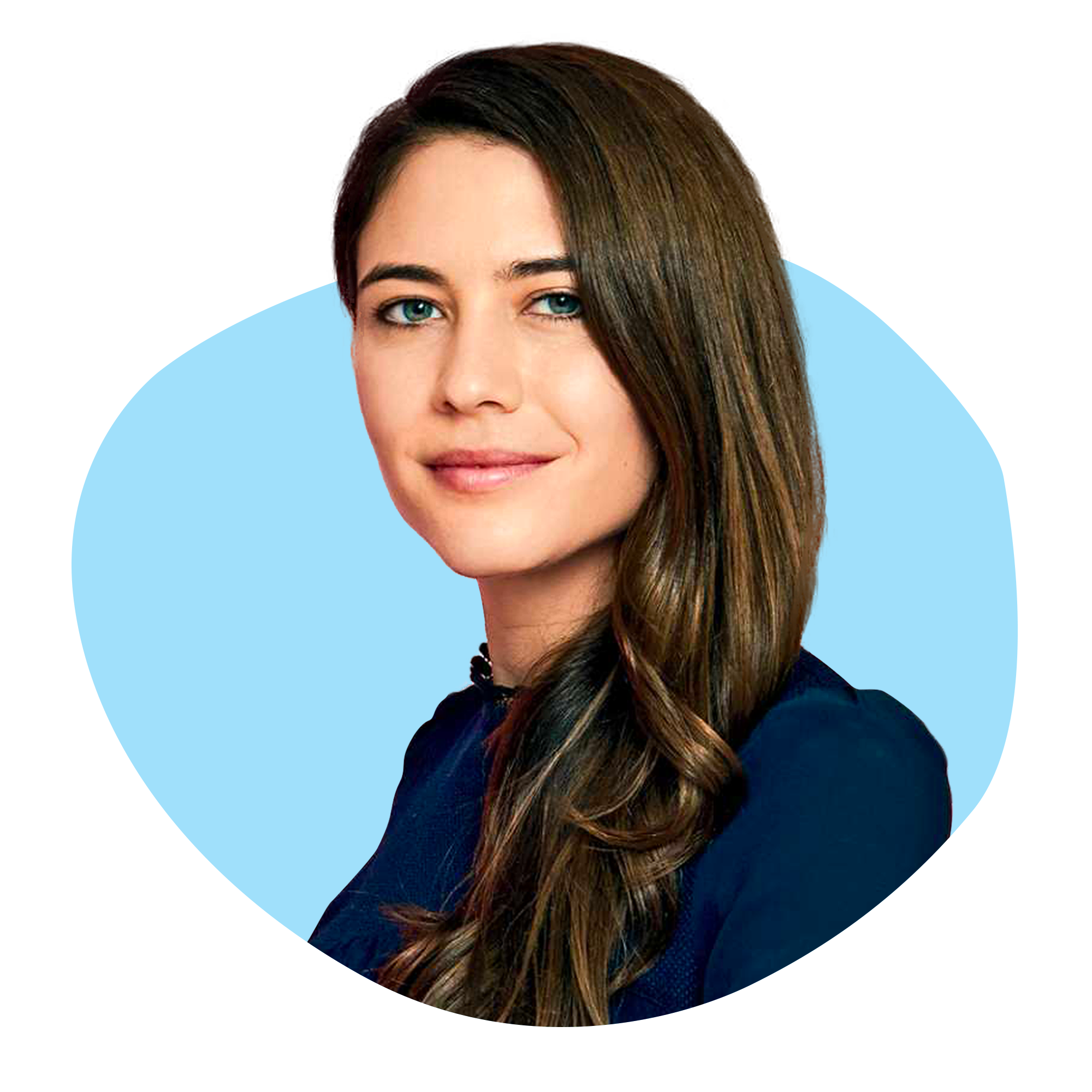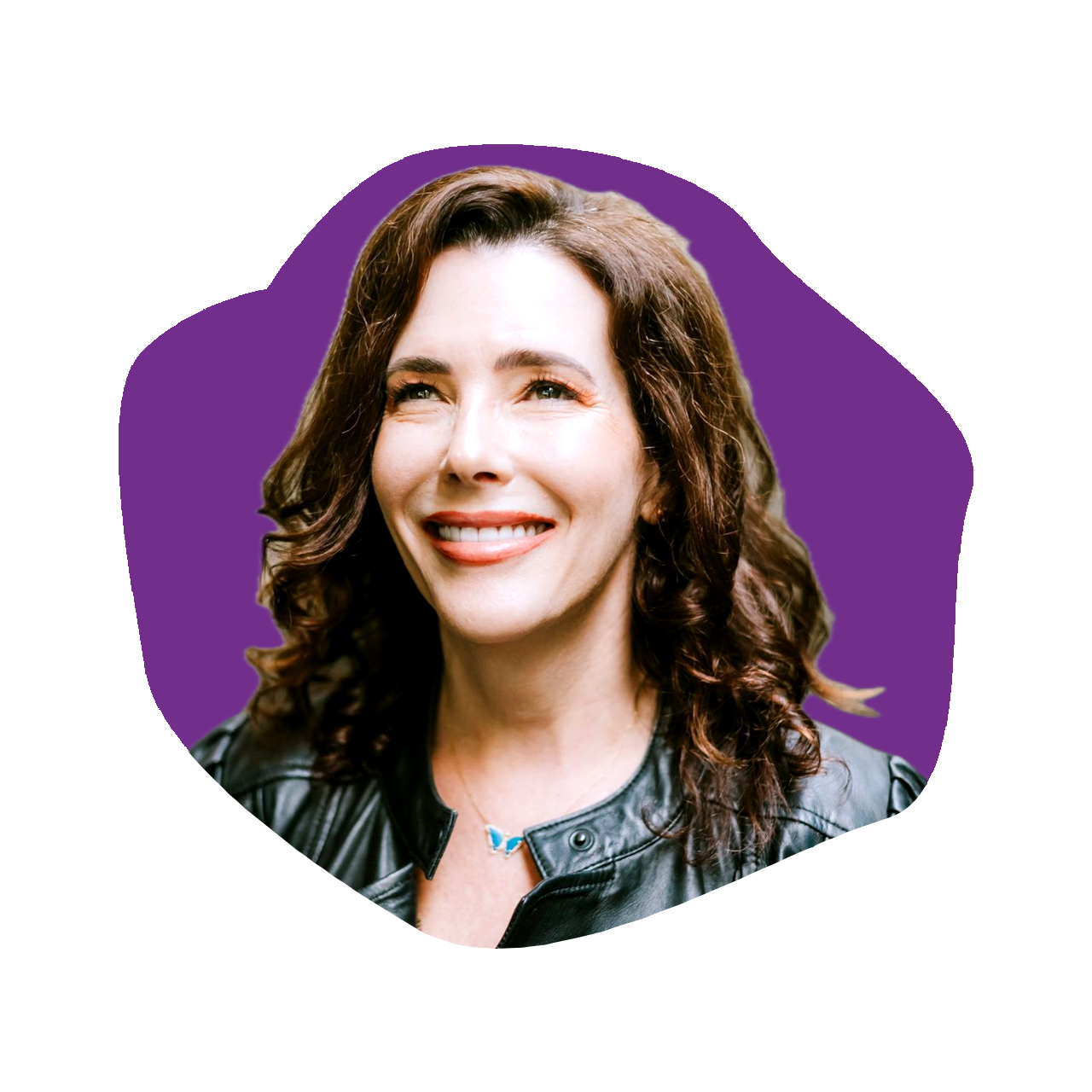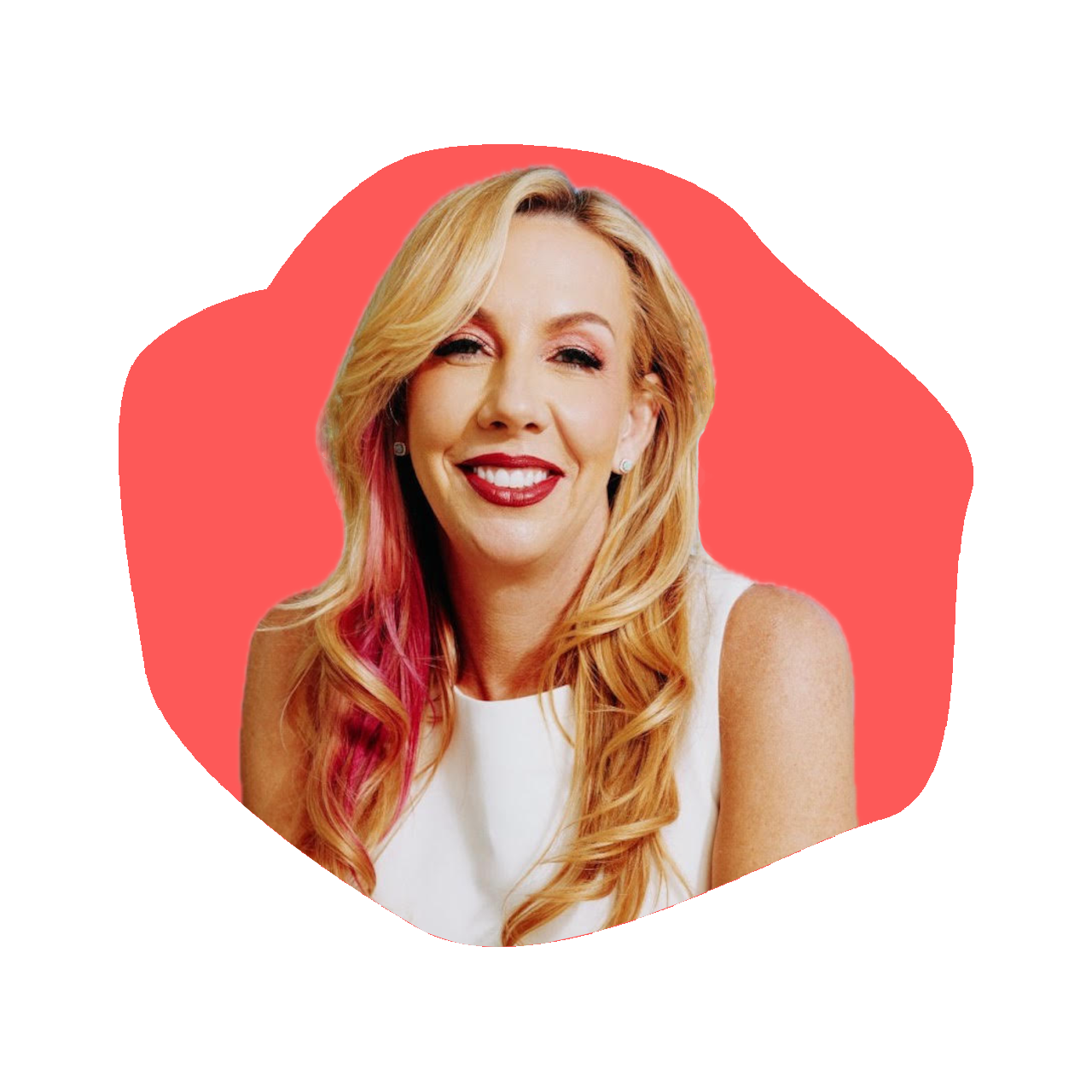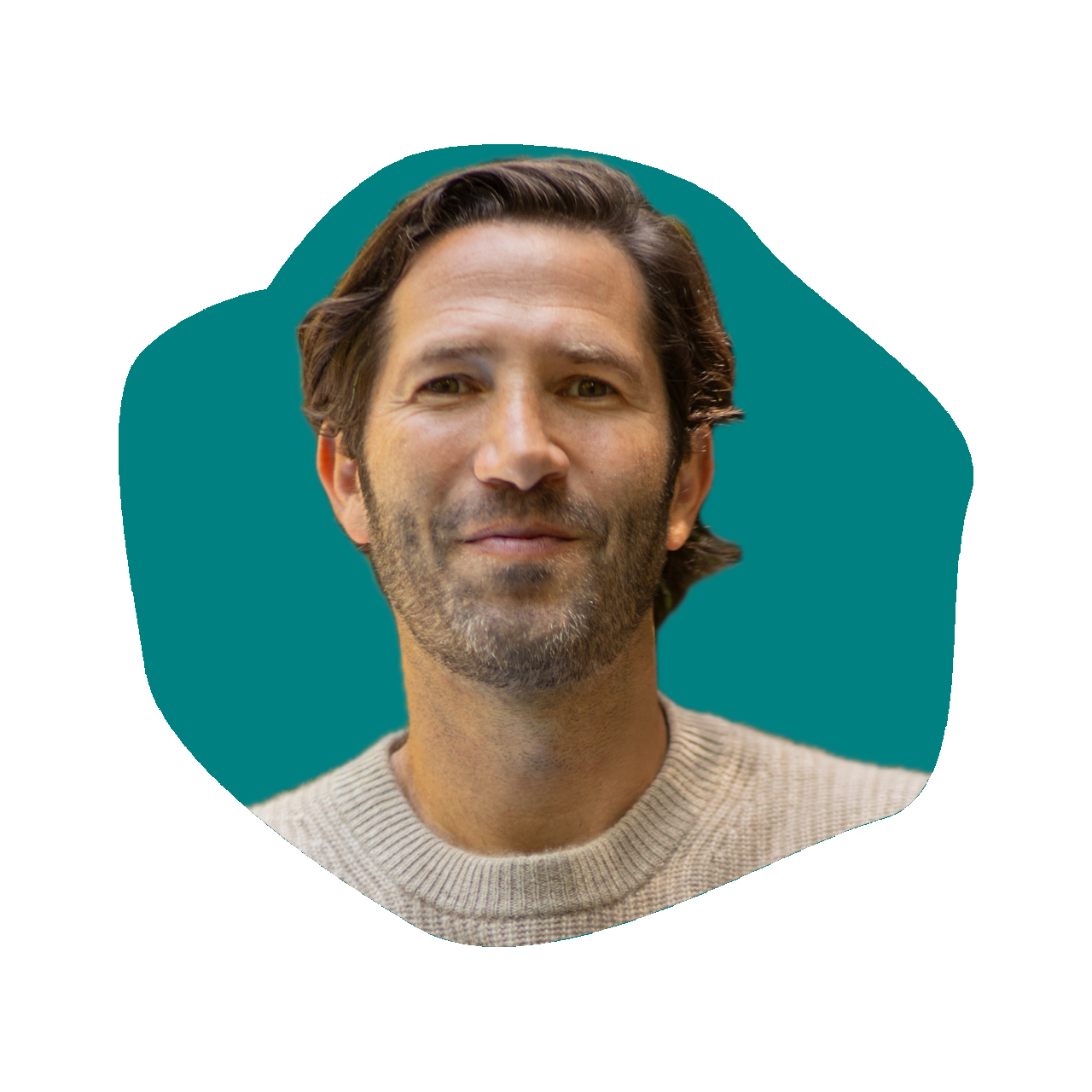Afton Vechery – Co-founder & CEO at Modern Fertility
Episode 86

Resources from
this episode:
Enjoying this episode of #TheKaraGoldinShow? Let Kara know by clicking on the links below and sending her a quick shout-out on social!
Follow Kara on LinkedIn – Instagram – X – Facebook – TikTok – YouTube – Threads
Have a question for Kara about one of our episodes? Reach out to Kara directly at [email protected]
Transcript
Kara Goldin: Hi everybody. It’s Kara from Unstoppable and I’m super excited to have our next guest here, Afton Vechery. Very, very excited to have you here. Welcome.
Afton Vechery: Thank you so much for having me. I’m so excited to be here.
Kara Goldin: So Afton is the CEO and co-founder of Modern Fertility. I’m so excited to have her on the show, to chat with us and educate us about just this entire field, and all of the exciting things that they’re doing. But modernfertility.com. Modern Fertility is making personalized fertility information more accessible to women everywhere. And the company provides fertility hormone essentials, so women can be proactive about their reproductive health, whether they want kids or not. And prior to Modern Fertility, Afton and I were just talking a little bit about her background, she was in healthcare private equity, strategic operations of various health tech startups, and most recently ran the consumer tools division at 23andMe. She is on the National Leadership Council of the Society for Science and the Public and graduated from Wake Forest. Woo hoo, great school and degrees in neuroscience and business entrepreneurship. So welcome, Afton. Very excited to have you here.
Afton Vechery: Thank you. I still always blush when anybody reads my bio, but the science fair part of it is new. It’s the National Science Fair Foundation, which I did in high school. And so, every time I hear that as a part of it, I get really excited again.
Kara Goldin: You get all giddy. That’s awesome. Oh, I want to hear more about this. Okay. So first of all, tell us a little bit about the mission behind Modern Fertility and how did you get this idea to start this company?
Afton Vechery: Yeah, so Modern Fertility is all about taking fertility from something that is very reactive and making it something that’s very proactive. And so, my introduction to the whole infertility space was actually in my first job out of school, I worked at a healthcare private equity fund in New York. And so, my job was to identify sectors of healthcare that were interesting, growing, had some consolidation potential. And so, just because of my personal interests, I ended up spending a lot of time in women’s health, and then within women’s health, I ended up going really deep on fertility and infertility. And so, from a private equity perspective, infertility was really interesting. It had a self-pay demographic, which meant it was a lot of people paying out of pocket for these procedures. It was rapidly growing. And so, I ended up leading the diligence for investing in a whole network of IVF clinics and labs.
And so it was through that process I learned the business of infertility. I learned the science of infertility, but it was really the emotional aspect that stuck with me. I had to go into IVF clinics in New York City and just talk to these women, these executives who had never been told that fertility declined with age, or had never been told that IVF wouldn’t work for every single person. And I really felt that at the age of, oh gosh, you’re 22 when you graduate, I think, when you go into your first job, that I had this unique insight into this world of fertility and infertility that I wouldn’t be talking about with my girlfriends for another decade. And so, that experience really stuck with me and just fast forward. I ended up leaving private equity, moved out to San Francisco, ended up joining a variety of early stage companies most recently 23andMe.
And then I realized that I was waiting until later in life to start my own family. And I tried to get my fertility hormones tested because I learned about those tests and these kind of baseline tests that you could do back when I was in private equity. And my OB GYN said, “No,” and that I wasn’t actively trying and failing to conceive. And so, they weren’t going to order the test. So I had to go into an infertility clinic, got the test, and when I finally got them done and had that conversation with a reproductive endocrinologist and IVF doctor, I was just so empowered. I was informed about my own body. I had a conversation with my doctor, my partner, myself, about my timeline.
And then I just started talking to my friends about it. And that was really the aha moment. In that these women that I was talking to were asking for and demanding more information about their bodies so that they could make the decisions that were right for them. And that was the start of Modern Fertility. How could we take the same exact laboratory tests that were done in an infertility clinic when a female or a couple was having trouble getting pregnant, out of the clinic, into women proactively, at a fraction of the cost and a super easy to access format. We have a simple finger prick, like what diabetics use, that you can do at home and ship in.
Kara Goldin: That’s so interesting. So why do you think that the traditional approach to fertility no longer really serves women? I mean, it’s like-
Afton Vechery: Yeah, I think that’s such a great question. So I think that there’s… I’ve thought about this a lot and I think that there’s three main reasons driving it. And the first and largest is really that women are waiting until later in life to start their families. Millennial women are waiting longer than any generation in the history of the US to start their families. The average age of first birth in major metropolitan cities is now 31 years old. And so, as you start to think about kid number one, or kid number two, or kid number three, your fertile timeline can overlap with the menopausal transition. It’s biology. We’re living longer yet our transitions into menopause and our overall fertile window is still exactly the same. Yet as a society, we have not changed the education system. We’ve not changed the healthcare system to provide this education proactively to women that are now needing this information earlier to make the decisions that are right for them.
And so, that plays out in the statistics. Now we have one in six couples that are struggling to get pregnant with age being the largest driver. The second is that 20% of millennials identify as LGBTQ, where the traditional definition of infertility and fertility just doesn’t apply anymore. And so, when you start to look at the new construct of a family, new constructs of couples, it’s amazing, but we just need new rules, we need new technologies, we need more information. And then I think that, I guess the third is more of a request. I think it’s more, we’re so used to having all of this information about clean beauty products. We’re so used to knowing in our Hint water that it doesn’t have chemicals in it, and that it’s safe. How come fertility is just still a black box? And I think that really, there is just a lot of confusion around, as we have these new requirements, what fills that gap.
Kara Goldin: Really interesting. As you were talking, I remember an interview that I had with Maria Shriver around hormones and a great episode that we did. And, she’s done a ton of research around hormones and Alzheimer’s, and so, it’s not just about really understanding, “Can I get pregnant?” What are sort of the issues around sort of that whole world, but also there’s a lot of other things that are going on in people’s bodies that could actually be damaging to the brain. And anyway, I thought it was really, really fascinating. [crosstalk 00:08:34] Yeah. That just another reason why it’s important to actually really understand where your hormone levels are. And one thing that she talks about too, is in that podcast, I remember was after women have a baby, it’s a time when you are depleted from so many of your hormones, and then you end up… People call it pregnancy brain, or new mommy. Maybe there’s depression, there’s other things where it sort of manifests itself in different ways. But if you were actually to be able to use your kit to really understand that kind of information, right?
Afton Vechery: I mean, I could talk about this all day. I think that, we call hormones, your fertility detectives. And when we talk about reproductive health, we really talk about it as a huge part of women’s health. And whether you want kids or not, understanding your reproductive health, is just so important. And by looking and testing your hormones, it helps to build out a picture. Just like when we think about more common types of blood tests and cholesterol testing. When you test your cholesterol, it’s not going to tell you if you are going to get a stroke and die tomorrow of a heart attack, but it will help you understand where your body is, and how you should think about risks. How you should think about your diet, how you should think about planning. And when we think about reproductive health and your hormones, they’re really your fertility detectives.
Because when you look at your body on the outside, you could do yoga every single day. You could drink all the green juice and just live a healthy lifestyle, yet your reproductive health could be on an entirely different page. And so, we have to combine this kind of what’s on the inside with what’s on the outside to truly have that comprehensive picture. And I think that in the US because having a baby is not a right, it’s a privilege, we have no federal coverage for infertility. And so, the way that the system equips us to have this information, it’s not there.
And so, the reason that we started Modern Fertility was really to fill that information gap. We really just started as a fertility information company, and we knew that hormones were just a key part of having that baseline, that overall picture. So we started with the Modern Fertility hormone tests. We recently launched two other hormone tests that you could take pregnancy and ovulation, so you can zoom into your cycle and actually see whether you want kids or not. Are you ovulating every month? And so, the amount that you can learn about your body through hormones is fascinating.
Kara Goldin: Super fascinating. So we’re recording this, hopefully coming out of COVID, although I’m an optimist over here, but fingers crossed. But how has COVID impacted fertility as you see it?
Afton Vechery: Yeah. So, at the beginning of COVID, at the beginning of the shutdown, I think so many direct to consumer companies or just products that you could buy online really saw a hit. And we were definitely included in that bundle. We didn’t know what was going to happen and purchase behavior just shifted across the board. And so, I would say that, yeah, for that every company, whether they were accelerating sales or plummeting, kind of threw their 2020 plan out the window and had to go back to the basics and figure out how they were going to think about their company, their workforces growth for the next year. And so, we definitely went through that exercise, and we’re fortunate to be able to keep our entire team during that period, but quickly, kind of coming out of that, we really saw that COVID kind of accelerated a lot of trends that we were already seeing in our business.
And so, we really saw that more women were starting to think about their families proactively because they didn’t know if they felt comfortable going into the healthcare system with the risk of COVID. They were trying to think through, do I want to get pregnant in this environment or not? And so, I would say, quickly coming out of that dip, we really just saw this acceleration, which was certainly a silver lining and helpful for us as we just started to really just push education and helping folks understand the nuances. So, yeah, I think where we’re doing well today and have really just looked at this period of time and done a lot of surveys and tried to understand how consumer behavior around fertility and reproductive health is shifting.
Kara Goldin: That’ll be super, super interesting when you guys have more of that out. Because I’ve definitely wondered, is it a good thing that everybody’s sitting in the same house together or is it not a good thing? Right? I think it will be fascinating also to just see, what does that do to your system. Right? Like what stress creates around that as well.
Afton Vechery: Yeah. I have a few stats if you’re interested. We were interested in the same thing of would we see this massive baby boom or not. Would it go in the opposite way? And so we, at the beginning of the year, we had partnered with SoFi, a financial technology company to survey women and people with ovaries about how financial health and careers tied with fertility and family planning goals. And so, we reached back out to that same cohort of a couple thousand respondents and asked them how COVID had shifted their family planning goals. And so, this was at the beginning of COVID. So I’ll caveat this, that we don’t know, no one knows exactly how things have continued to evolve now that we’ve kind of been in this state for a longer period of time, but 49% of respondents were delaying kids. And the top two reasons were money related. 60% wanted to have more money saved, and 51% said that they wanted a higher salary first.
So it was really the economic uncertainty paired with COVID that was driving a lot of those decisions. And what I thought was super interesting is whether people were making $20,000 a year or $200,000 a year, that response didn’t change. They still wanted more money and more stability as we navigated through this time. Which I think that there’s a lot of ways you could dive into that stat. And then, also within that, a lot of the respondents cited travel as a reason that they were looking to delay. 47% of the respondents listed travel as the influential factor in delaying kids.
Kara Goldin: So interesting. Really, really interesting. Well, I can’t wait to hear more about that too. So, today about one in six opposite sex couples struggle with infertility. What do you think is the solution?
Afton Vechery: Well, I might be a bit biased, but I think the biggest, most actionable step that we can all take today is information. It is truly having a conversation about fertility and infertility out in the open without stigma, thinking about fertility and infertility just as a part of our overall health. And then understanding our bodies, understanding our hormones as step one. I truly think that information can provide such a solution in this space, because that is just the most addressable portion of the equation that we can interact with today. I think a lot of folks would say that IVF or egg freezing would be the solution. And I’ve thought about this a lot. And I just, I’m not sold. I think that egg freezing is an amazing technology and is a amazing solution for some women, but it is expensive.
It’s invasive, and it’s not an insurance policy. It changes your odds, but there’s still a lot that can happen between freezing your eggs and achieving your family planning goals. And so, I don’t know if that’s going to be the technology that reaches mainstream adoption. I think that we still, the industry needs to invest more in technologies that give women and people with ovaries more flexibility. And the same goes with IVF. I think that IVF is an amazing technology. It will continue to be an option for some families, but still remains incredibly expensive and inaccessible to the masses. And so, I think that information is free. It’s something that we can have upfront. And then where we decided to kind of come in is to supplement that with additional kind of baseline information so that women and people with ovaries could have that more informed conversation with their doctor.
Kara Goldin: Definitely. I agree. So, we have lots of people who listen to this podcast who are interested in starting companies, and obviously you have a great background, but what do you think was the biggest thing that you learned? I mean, it’s not just about having an idea too. It’s also, you and I briefly talked about growing a team, and getting capital. What do you think were, I guess, the hardest things or the things that you didn’t realize, when you were going and starting this?
Afton Vechery: Yeah. Oh my gosh. I think, everybody just has, I think, slightly different answers to this. And when I think back, it was really, I quit my job, not having the idea for Modern Fertility in mind. And so, when I eventually centered in on the idea for Modern Fertility, I had decided that I really wanted to have a co-founder, and that is a pretty big decision in itself. It’s basically, you’re deciding that you want to marry someone and that you want to bring them into your life, and spend the majority of your waking hours with that person. And I think that one of… I remember talking to some of my friends and telling them, “Hey, I want a co-founder. Is there anybody that you would recommend that I talk to?”
And having friends, former colleagues, mentors, refer people in their network to you, I mean, it was the most humbling experience, but I also remember just being terrified to even make that ask. I probably sat on that email for a week, just mustering up the courage to send an ask for people, to kind of put their name out on the line, to make those connections. And so, I think that any early stage company, and we talked about this a bit, it’s a series of taking risks, which start really small and then grow a lot bigger over time. And it’s just kind of continuing to put one foot in front of the other and make more decisions. And then, yeah, I guess all of a sudden, you have a company.
Kara Goldin: Yeah. No, definitely. Who’s your co-founder?
Afton Vechery: Yeah. So my co-founder’s name is Carly Leahy. She’s amazing. She really kind of came from the brand content marketing side of the world. She started her career in Boston, at Digitas, then went over to Google, helping to get their small businesses online, and then went over to Uber Eats and worked on… Or it was Uber Experiments, which launched Uber Eats, Uber Health. And so, yeah, I was introduced to her through a friend of friend and we started working together and yeah, she quit her job. We went through Y Combinator, a startup kind of ecosystem out in the Bay area. And yeah, now spend a lot of time together, which is great. She’s fantastic.
Kara Goldin: I just interviewed another Y Combinator graduate, recent Y Combinator graduate, a product called Shef.
Afton Vechery: Oh, interesting.
Kara Goldin: Yeah. Really, really cool. And actually Geoff Ralston, I don’t know if you met him in the process, but Geoff is, I think he’s president of Y Combinator, but he was our first investor. He’s a friend of mine. And anyway, he thought that this idea for starting a beverage company was absolutely crazy, but he’s like, if anybody figures it out, it’s going to be you. And so, he put the first money in, and now he’s quite happy that he did, but he’s such a great guy. And anyway, I have so much mad respect for Y Combinator because I think what they do in just organizing and pushing people to actually develop and really kind of set that… Sometimes I think you just need almost like a coach to sort of say… When I was interviewing Joey Grassia from Shef, he was saying that he had said, “Okay, we’ll have it together in 30 days, we’ll have our site built.”
And they said, “No, you have three.” And he was like, “I can’t do it in three.” And they were like, “Get as far as you can, because you’re going to blow the whole thing up anyway and go do it.” So again, I think what they provide for so many entrepreneurs is structure and all different kinds of ideas. So it’s super, super, very, very cool. But so you found your match for your co-founder and different skill sets, which I always share with people. Did you guys both have kind of stories around fertility? I mean, do you think passion… I always talk about passion trumps experience too. And obviously you guys were… You’re not coming from, you’re not OB GYNs or you’re not… But you’re coming from a place of this being of interest to you. And did you feel like that was sort of a commonality that you both shared?
Afton Vechery: Yeah. So, while I kind of came from the medical side, or I’m not an OB GYN, I’m not a doctor, but I had been kind of seeped in the medical side. I had a network of reproductive endocrinologists and OB GYNs before that with private equity and finances, it was really kind of this operational focus, but I knew the importance of brand. And I knew that Modern Fertility had to be something that women wanted to consume. And we had to talk to her and engage her… Like her OB GYN that was also her best friend, and in order to create that it really had to be a partnership between me and Carly. And so, Carly did not know anything about fertility when we had our first meeting. She took the meeting and kind of heard me out. And when you hear the story from her, it’s really that she made it her mission to convince her former self of the importance of this information, because she was the type of person that [crosstalk 00:24:14] her mom stayed at home, she had sisters, and she just was always hard charging with her career.
And I think, when she went deep on all of this information and understood the nuances, she just couldn’t believe what she didn’t know. And so, I think that we had this combination of this more kind of… I struggle to say, not expert perspective, but just kind of industry perspective, combined with learning all of this for the first time. And I think fusing that together really helped us create something that resonated. And then the first thing that we did from there was we knew the importance of partnering with the medical community to do this. And so, forming our medical advisory board and just having all of those doctors around the table as well, to really work with us, to make the best decisions.
Kara Goldin: Very, very cool. So, one thing that you mentioned before. You had some big news, you were in the process of a huge launch. Let us know what that is?
Afton Vechery: Yes. So we are, I guess by the time this comes out, we will be live in 1500 Walmart stores and walmart.com with our pregnancy and ovulation tests, which I am so, so excited about.
Kara Goldin: That’s amazing. And is that, so it’s nationwide?
Afton Vechery: Yep, nationwide. All across the country. We just made this really cool little Google maps feature all the way across the US, in Hawaii as well. I didn’t realize that there were Walmarts in Hawaii, but it’s… Yeah. I’m super excited and I think when we started the company, it was really about accessibility. And I think from day one, I grew up in a small town in Maryland. And so, we really wanted to make Modern Fertility something that every woman could learn from no matter where she lived.
And for us, Walmart is just this step forward of going to the same place to get your pregnancy and ovulation tests as you do toothpaste, but having a really modern experience in the aisle, that’s tied to broader education. So when you buy our pregnancy test, when you buy our ovulation tests, you can get a free app. You have access to our weekly webinars. You just have all of this content and education that sits behind that. And then you can also engage with us, do research, and push forward the space of women’s health. And so, I’m really excited and just feel proud of the team. It’s no small feat, as you know, to partner with retail and especially with a lean team and get on shelves. And so, I’m really excited.
Kara Goldin: Yeah. And really getting to the Walmart audience, I think will be incredibly important. I mean, I think that there’s definitely an education around this. Right? That unfortunately, it’s hard to tell on a box. Right? Like for us, I mean, when we launched Hint, people were saying to us, “Oh, it tastes great. What’s it sweetened with?” And so, it’s the same kind of thing. You have to get the product not only in front of people for sale on shelves, but you also have to figure out through social and other aspects, how do you actually get the consumer.
Afton Vechery: Exactly. I’m holding up our boxes now. It’s the same way where you have on the back, you can learn all about them. You can learn our founding story. You can understand why you measure LH to learn more about ovulation and timing intercourse or insemination. And so, yes, that is spot on.
Kara Goldin: That’s awesome. Are you guys doing ads on social in terms of… I could see video and stories just being such a part of your-
Afton Vechery: Yeah, yeah. So for us, I think we’ve really seen the most traction in other women and people with ovaries telling our story. When someone talks about the personal experience that they’ve had with Modern Fertility, I mean, it’s real. Right? You have women that are just checking in, that it opens up a dialogue with themselves and with their partners. One in a hundred women have premature ovarian insufficiency, which means… And this is with our core Modern Fertility hormone test. You can understand more about kind of some of these broader levels, but one in a hundred women have premature ovarian insufficiency, and this has major impacts on fertility, your overall timeline, and it’s tied with a lot of other medical conditions.
And so, I think that the stories on the extremes are always the most powerful, but even just talking to someone that can genuinely talk about the benefits of arming and equipping themselves with information. I mean, it’s so powerful. And, I think for us we’re really proud to talk about Walmart as a partner and just continuing to let women know that for pregnancy and ovulation, those often have more urgency to purchasing them. And so, they can swing by their local retailer in addition to buying them on our site.
Kara Goldin: Yeah, definitely. Really, really interesting. So, I always ask this question of every one of our guests. What makes you unstoppable? What is the key thing that you think is really important in entrepreneurs and… You’re on a different level though. You’re not just a typical entrepreneur. You’re taking on a very complicated category, one that needs a lot of education, and also just kind of taboo too, where people are… I think you’re doing great things. I mean, you’re doing things where you help people, right? So what do you think makes you able to do that?
Afton Vechery: Oh, well, thank you for saying all of that. I mean, it really, I genuinely, am so, so passionate about this space about reproductive health, about proactive fertility information. Whenever I hear people talking about fertility or reproductive health on the street, I think of that as such a win. I think of that as a win for society, that we’re starting to normalize some of these topics. And so, I really think this unrelenting passion and view of how I want the world to be, and just every single day waking up and trying to make progress against that, I find that just incredibly motivating for me personally. And I think, as you know, at every phase of a startup, of a company, there are just so many highs and lows. And I think when you have that North Star, that passion can just kind of continue to get it through.
And I think under that passion, there’s just a ton of curiosity. And I think that that’s something, even if entrepreneurs are in a space where they’re not personally passionate about the space or mission, there can be a curiosity that kind of creates that passion. And so for me, as well in reproductive health, I think that fertility and reproduction is the fundamental essence of humanity. Right? And so, when you really kind of take a step back and start to look at all of the science and innovation, I read about it for fun on weekends. I truly love it and it makes it not feel like work, which I think is helpful when you’re at this stage.
Kara Goldin: I love it. I love it. Well, thank you so much for coming on and talking to us a bit more. Educating me for sure on this, but it makes me all the more interested in your company and what you’re doing, and just as a founder. Just going out and breaking down walls, and you talked about just so much that I’m really interested in. Just also, you talked about a lot of the doubts that you had. I have a book coming out in a month that I’m talking in the book that the core is really around the fact that entrepreneurs definitely have doubts. They have doubters, that think, “Oh, that’s not going to happen. You’re never going to be able to make it happen,” but it’s really about trying, and going out and doing what you can, which is what you’re doing. I mean, which is so noble and just awesome. Well, thank you so much. Where do people find you, Afton, on social? Are you on social?
Afton Vechery: Yes.
Kara Goldin: Obviously modernfertility.com, but where else can people find out more info.
Afton Vechery: Yeah, you can go to modernfertility.com. You can find us on all social platforms on Modern Fertility. I’m Afton Vechery. DM me, find us in our community that is free to join. We really just want to continue this conversation. And so, having this conversation with you, was just such an honor. I am a super fan as well, and this really meant the world. Thanks so much for having me.
Kara Goldin: Awesome. Thanks everybody. And if you guys liked this podcast, please give Afton super high marks, and subscribe, and all that kind of stuff. So thanks everybody. Have a great rest of the week.









